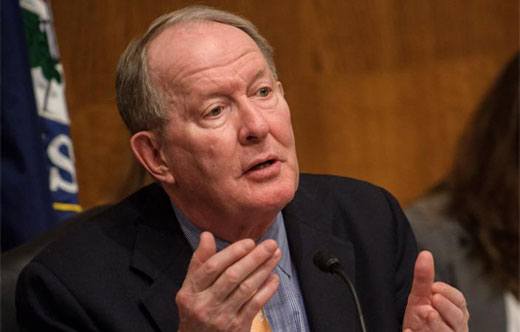
Senate health committee Chairman Lamar Alexander (R-Tenn.) on Wednesday said, “The administration should not move too far, too fast on implementing new rules on electronic health informati
Improving the access, use, and exchange of electronic health informati
on is important to this committee,” Alexander said. “In March, the Office of the National Coordinator (ONC) and the Centers for Medicare and Medicaid Services (CMS) issued two proposed rules to implement the electronic health informat ion provisions in the 21st Century Cures Act. At our hearing last month, I asked our witnesses if these were good rules – and all four said yes, the intent and the goal of the rules were correct. Mary Grealy, president of the Healthcare Leadership Council said: ‘Interoperability is not simply desirable, it is absolutely necessary. … These rules represent an important and perhaps groundbreaking first step for true national interoperability.’”
Alexander made his remarks on Wednesday at the Senate health committee’s second hearing this Congress on the implementation of the electronic health informat
“I also asked our witnesses what one change they would make to improve these rules,” Alexander continued. “Mary cautioned about not rushing implementation, saying, ‘We don’t want to prevent moving ahead, or progress, but I think we also have to be very cognizant of the challenges that providers and others are facing trying to do this complex work.’ In 2015, I urged the Obama Administration to slow down implementation of Stage 3 of the Meaningful Use program, which incentivized doctors and hospitals to adopt electronic health record
s. They did not slow down, and looking back, the results would have been better if they had.”
“The best way to get to where you want to go is not by going too far, too fast,” Alexander said. “I want to make sure we learn lessons from implementing Stage 3, which was, in the words of one major hospital, ‘terrifying.’ I am especially interested in getting where we want to go with input from doctors, hospitals, vendors, and insurers, so we have less confusion, make the fewest possible mistakes and make sure we don’t set some kind of unrealistic timeline. Because these are complex rules, I asked CMS and ONC to extend the comment period, and I am glad to see they have done so and want to thank our witnesses for allowing more time for comment.”
Alexander said the committee also heard concerns about ensuring patient privacy: “If the 21st Century Cures Act is successfully implemented, patients should be able to get their own health data more easily and send it to their health care providers. Patients may also choose to send that data to third parties—like an exercise tracking app on their smart phone—but this raises new questions about privacy. Lucia Savage, Chief Privacy and Regulatory Officer at Omada Health said, ‘I think the committee… is rightfully concerned about privacy and security… None of this will matter if the consumers don’t have confidence, and their doctors don’t have confidence that the consumers have confidence.’”
At the first hearing this Congress on the proposed rules in March, the Senate health committee heard from a health care provider, subject matter experts, an application developer, and health care industry leaders. The committee had six hearings in 2015 to explore ways to get our nation’s system of health information technolo
